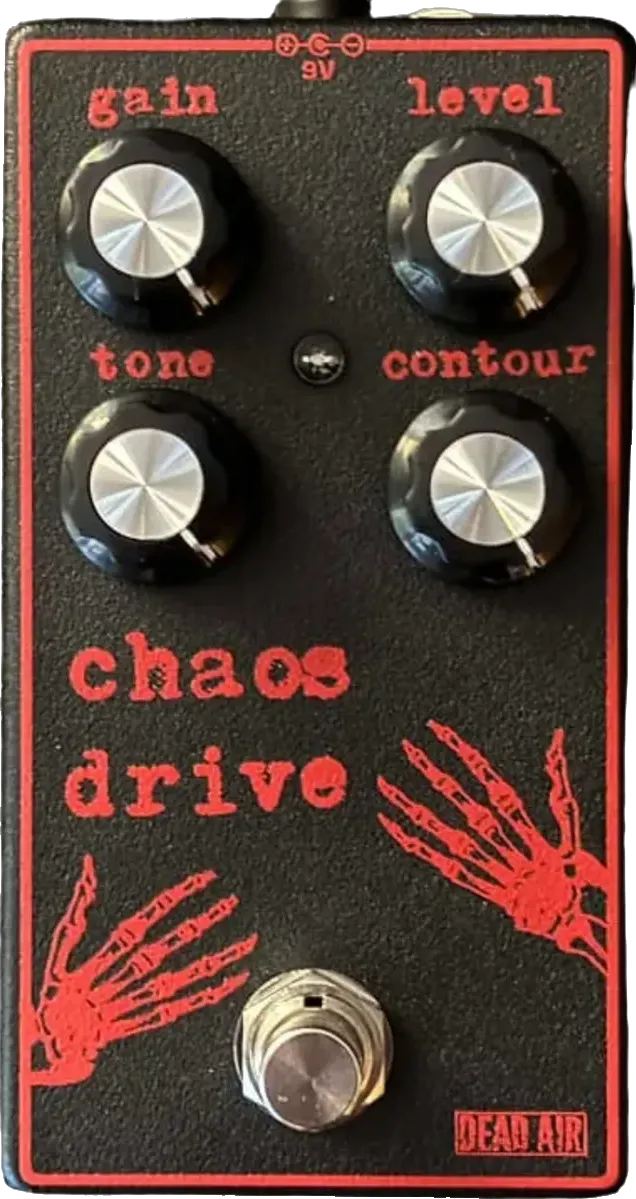Chaos Drive (Ltd. 1st Run)

Description
The Chaos Drive is designed to invoke the aggressive characteristics of old school solid state amplifiers [Marshall Valvestate]. As an overdrive, it works in conjunction with your amplifier to sculpt and enhance your tone. It is not an amp-in-a-box, or an existing pre-amp design in a pedal form. The Chaos Drive is not intended to emulate a specific tone, but rather to elevate and expand these tonal possibilities in new directions. It is often hard for any emulation to surpass its original, which is why the Chaos Drive forges a different path, evolving towards the best of both worlds. It allows you to retain the power and feel of your tube amp, with the aggressive tonal flavor of high gain solid state amps. CONTROLS GAIN - Sets the amount of overdrive. Below noon is relatively low gain, and above noon gets more aggressive. It's worth noting that high gain settings can feel a bit darker. It may be helpful to first find the LEVEL setting that you want to hit your amp with while having the GAIN around noon, and then fine tune the amount of gain that you’re looking for from there. TONE - Dials in the amount of high end bite and treble. The TONE knob will greatly help pair the pedal with your amp. Start around 9 or 10 o’clock for a bright Marshall style amp, or push it to 3 o’clock or higher to make darker amps sizzle. LEVEL - While the nature of this control is rather obvious, how hard you hit your amp with the LEVEL will greatly impact the tone you achieve with this pedal. The CHAOS DRIVE has a lot more low end than most overdrives and can potentially overwhelm your amp with too much of a good thing, depending on your rig. This is similar to the diminishing returns of turning an amp's volume up beyond what it wants to produce. Try playing some heavier chords, or simply chugging the lower strings while dialing this relationship in. CONTOUR - This control is the heart of what makes the CHAOS DRIVE ideal for dialing in the aggressive tones and feel of 90s solid state amps through tube amps and beyond. It exerts a strong control over the midrange. Don’t be afraid to crank it all the way up! * INTERNAL DIP SWITCH - This switch goes between Asymmetrical and Symmetrical clipping. For most users it will be a set and forget option for their needs and it is relatively subtle, so it has been kept internal. The Asymmetrical setting tends to feel a bit bigger, and heavier, while having slightly less gain on tap, though practically speaking this switch changes the feel more than it impacts the range of available gain. The Symmetrical setting tends to feel tighter and crisper. Into a quieter, and/or cleaner amp, you might prefer the weight of the Asymmetrical setting, and into a dirtier, and/or louder amp, the tightness of the Symmetrical setting might be preferable. Asymmetrical is the stock setting.